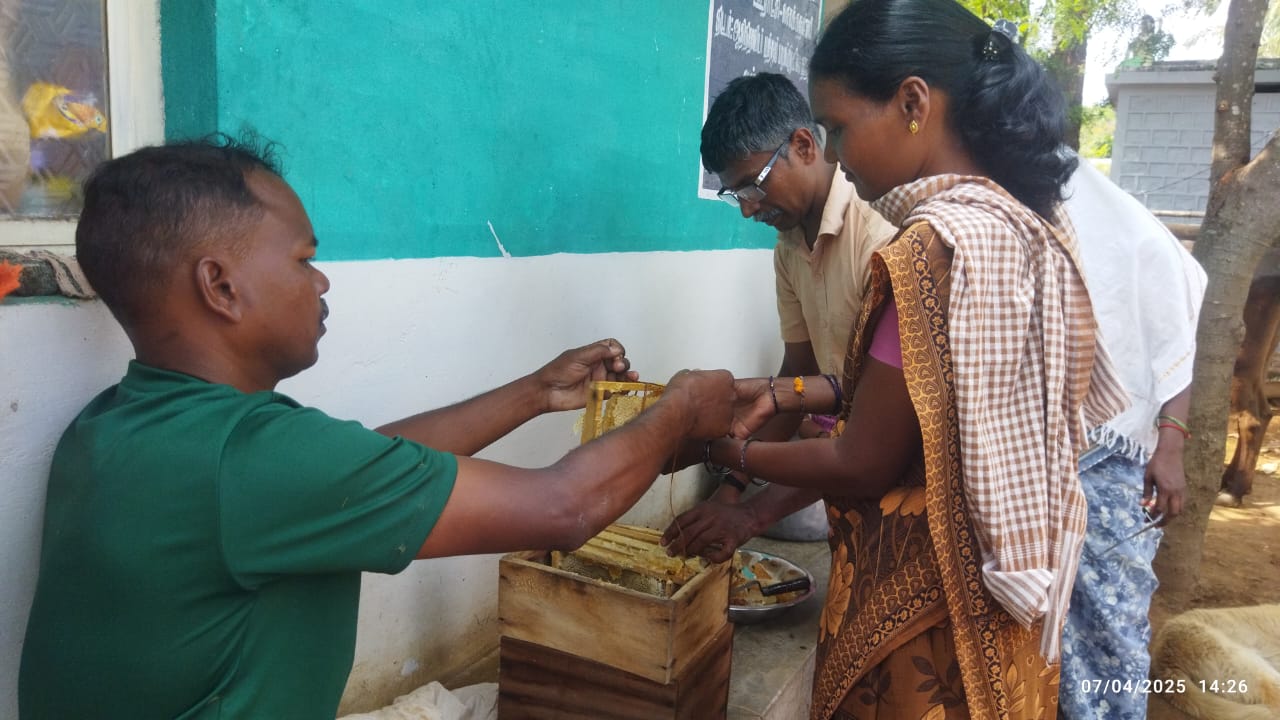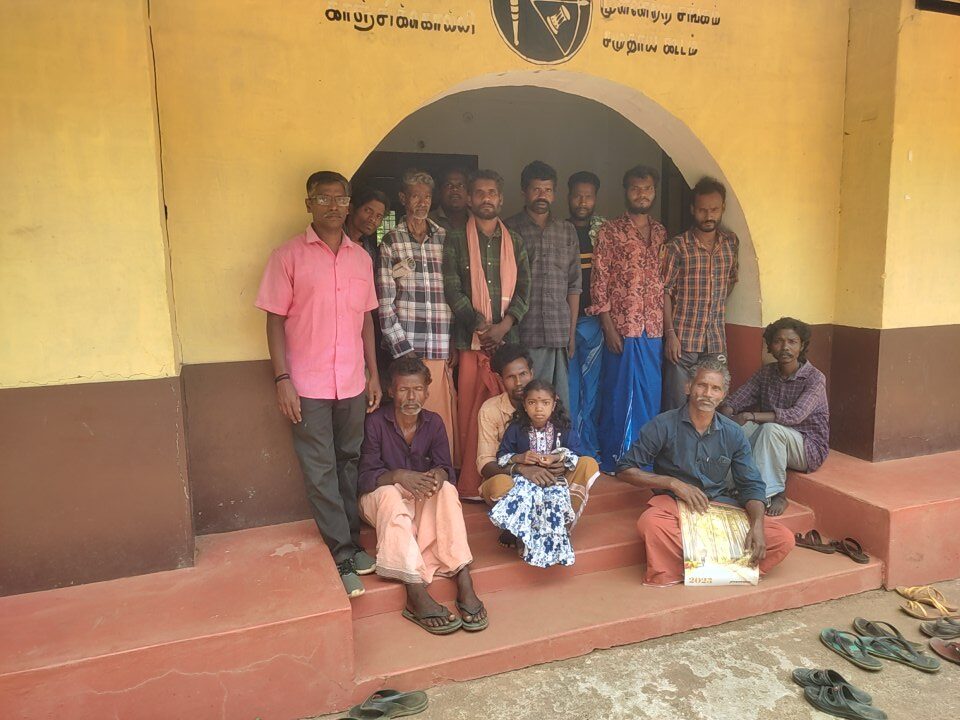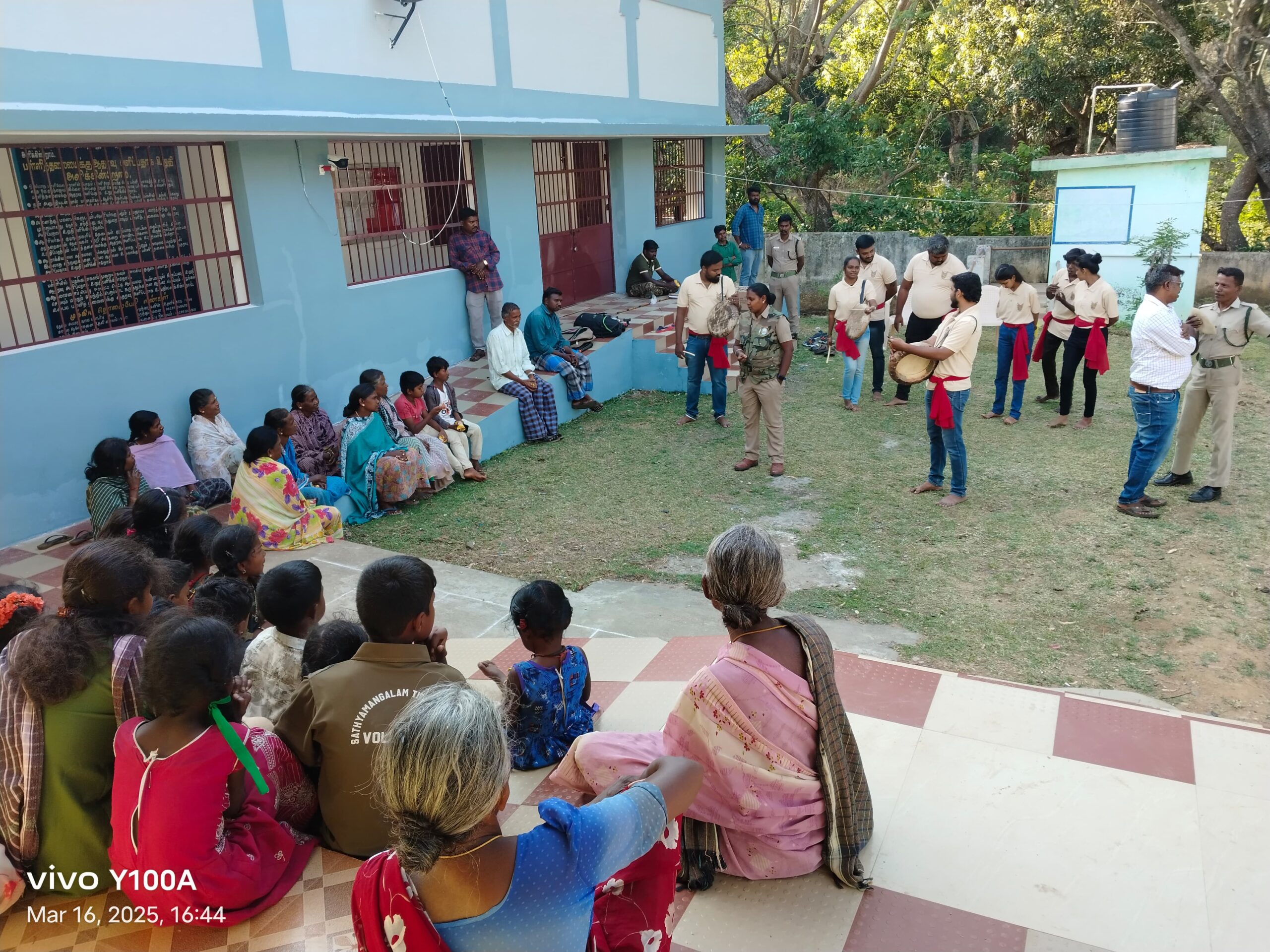By Justin Raj, Biodiversity Conservation
A follow-up session for the Beekeeping Training of Trainers (ToT) was held on April 7, 2025, in Chokanahalli village, with the goal of strengthening practical knowledge in beekeeping and providing continued support to the women participants trained earlier. The session was led by experienced resource persons Mr. Justin Raj and Mr. Rajendran, who guided the group through detailed hive inspections and live honey extraction activities. The training began with the inspection of Soraja’s hive box, followed by visits to the hives of Velluamma and Velluamma (Mari). During the inspection of Mari’s hive, the group observed a cross-comb formation inside the brood chamber, a common but tricky occurrence where bees build combs across frames, making management more difficult. Despite this, the honey chamber was well-developed, containing a healthy amount of extractable honey. The team demonstrated how to safely use a honey extractor to harvest the honey without damaging the comb or disturbing the brood area.
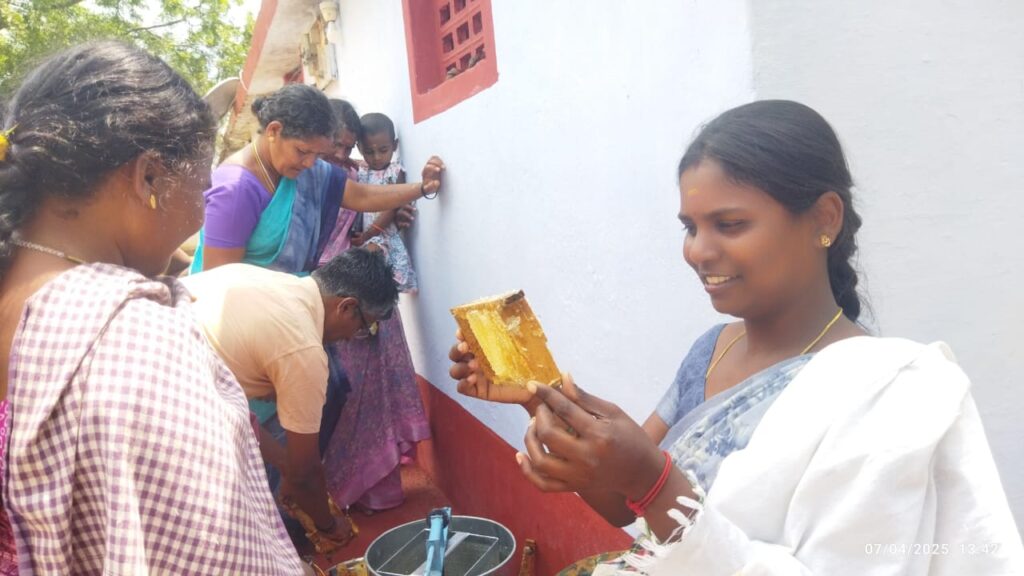
The trainers took this opportunity to explain the importance of understanding the structure of a hive, particularly how to distinguish between honey stored in the designated honey chamber and honey that forms in irregular or cross-built areas. Techniques for carefully cutting and collecting honey from such combs were shown, ensuring that participants learned how to maximize harvest while protecting the colony’s health. The training continued with the inspection of two hive boxes maintained by Basuvan and three boxes managed by Poornima, from which honey was also successfully extracted. These practical demonstrations helped participants build confidence in handling equipment, identifying issues within the hive, and making decisions on how and when to harvest.
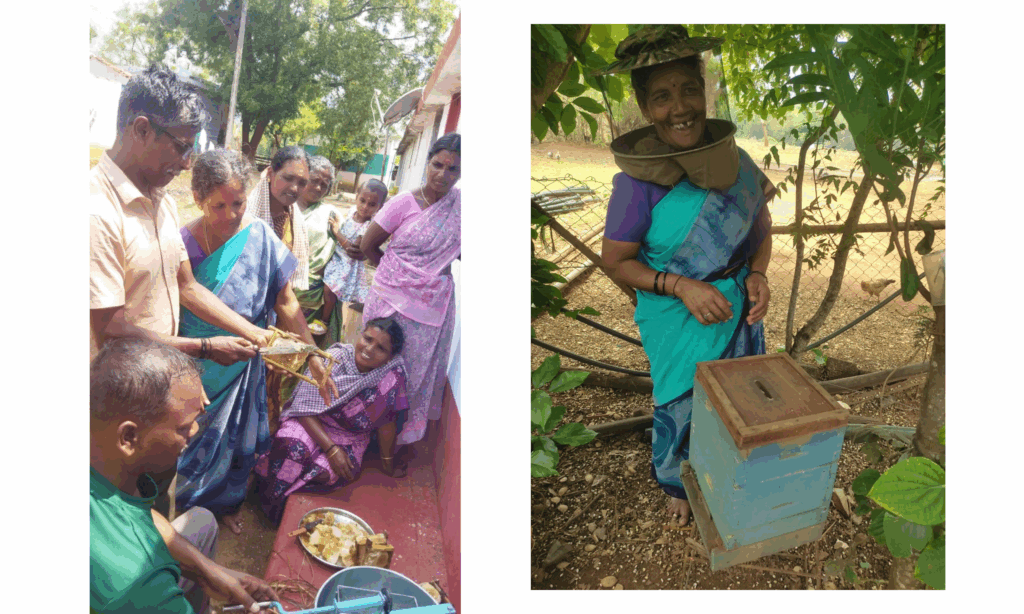
A total of seven women—Poornima, Vijayarani, Soraja, Saritha, Velluamma, Iswariya, and Kavitha—actively participated in the follow-up. They engaged with curiosity, asked insightful questions, and practiced the techniques themselves under the guidance of the trainers. The session not only reinforced technical knowledge from the earlier training but also encouraged a deeper understanding of the relationship between bees, hive health, and sustainable honey harvesting. It was a valuable step in empowering local women beekeepers with skills that can enhance both their livelihoods and their confidence as caretakers of nature’s pollinators.

